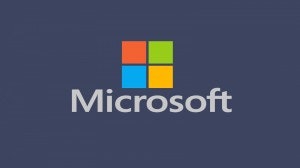
On May 21, Microsoft Corporation (NASDAQ:MSFT) announced the next iteration for its Xbox gaming platform, to be called Xbox One: There’s little doubt that Big Softy is counting on this new console to play a big role in the company’s effort to establish itself as a serious player in the living room. For investors, the question is whether or not this will move the needle.
More than just a gaming console
Microsoft Corporation (NASDAQ:MSFT) has done a nice job of squeezing every ounce of capability out of the existing Xbox 360 platform over the past couple of years, including adding dozens of popular streaming apps like Netflix, Inc. (NASDAQ:NFLX) and Amazon.com, Inc. (NASDAQ:AMZN) Instant Video, as well as the ability to use the console as a cable box for Verizon Communications Inc. (NYSE:VZ) FiOS and Comcast Corporation (NASDAQ:CMCSA) XFINITY, adding further integration between many of the ways that consumers access content. However, there’s only so much juice in an orange, and the nearly decade-old technology in the Xbox is slow to move from one function to the next. It’s just never felt fully integrated. Factor in that the voice recognition in Kinect, while revolutionary, just doesn’t work that well as an interface for watching TV or moving from one content source to the next.
The Xbox One looks to be changing that in some very serious ways, with powerful hardware and integrated software that- at least as they’ve pitched it to us- will be the first platform that ties both our connected- and legacy- technology lives together in a seamless, integrated fashion. The idea is for us to interact with these things in a simple, comfortable way, instead of adapting ourselves to our entertainment sources as we’ve had to do in the past.
But will it actually work that way?
That’s the billion dollar question. The bottom line is that Apple Inc. (NASDAQ:AAPL) has done a remarkable job of creating an “ecosystem” of sorts, between iOS, iTunes, and the App Store, using iCloud to tie it all together while never really making a solid dent in the living room. User satisfaction surveys consistently place the iPhone and iPad at the top of the heap, and it has substantially higher numbers of repeat buyers than any other manufacturer, especially amongst those competing with one another with different flavors of Google Inc (NASDAQ:GOOG)’s Android.
But despite the moderate success of the Apple Inc. (NASDAQ:AAPL) TV set-top box, we are yet to see any real evidence of the rumored iTV, fully integrated device that investors have clamored for as being the company’s next big market-disrupting innovation, or the supposed iWatch. All the while, the stock price has languished as the market has faced uncertainty about both future growth, and deployment of the massive cash generated.
Google Inc (NASDAQ:GOOG) has established itself as the de facto source of information with its dominant search, maps, YouTube, and AdWords drawing in both searchers and advertisers by the boatload. And while Google uses its massive profits and free cash flow to fund research via its top-secret Google Inc (NASDAQ:GOOG) X labs into more ways to connect people and information, it has also never made an effort to establish itself as a real player in the center of connecting these disparate parts of our entertainment lives. Google remains a destination, by its own choosing.
Microsoft Corporation (NASDAQ:MSFT)’s big push with the Xbox One could actually pay off if it does a good job continuing to position the console as the next step in home entertainment. But the key isn’t so much about the Xbox One itself, as it is about what else comes along with it, if it can draw consumers back in.



